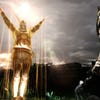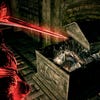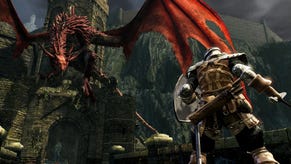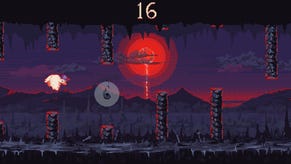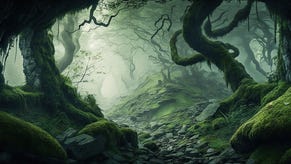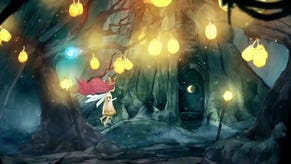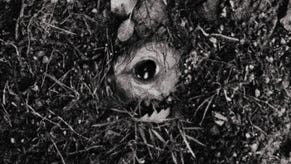Dark Souls
Tough love.
If Demon's Souls was purgatory, Dark Souls is a descent into hell. From Software's follow-up to its celebrated dark fantasy ordeal is even harder, even more remorseless and bleak.
The grimy half-light that fails to illuminate the hateful monsters lurking in the shadows is no longer bluish and sorrowful, but has a smouldering, angry tinge. The Nexus, your hub in Demon's Souls, is gone entirely, along with the brief sanctuary and distant promise of redemption it held.
Once again, there's a doomy set-up, intoned over the appalled shrieking of a chamber choir in an intro movie, but its pretext for your heroism rings hollow. You're already dead, and so is everything else, and all of it hates you. You're on the hunt for four great demons but you've no confidence that slaying them could save this ruined world. It's just your punishment and theirs.
So yes, Dark Souls is hostile and cruel - but it's not heartless or soulless. Far from it. Designer Hidetaka Miyazaki and his team will test the limits of your patience and concentration, but the reward they offer in return is rare indeed: the gradual discovery and mastery of a world of vast scope and immaculate fine craftsmanship, a world saturated with secrets, magic and awe.
If you have the stomach for it - and can look past the game's initial, somewhat misleading disregard for you - Dark Souls offers dozens upon dozens of hours of hair-raising adventuring. It's founded on superlative sword combat and an intricate world design that owes more to the hand-drawn maps of early Metroid and Zelda than the random dungeon crawls of Rogue and Diablo.
The gameplay is very similar to Demon's Souls. Death is frequent as you inch through crumbling castles and shadowy vales, battling monsters. You'll spend most of your time in an undead state, as a withered zombie, striving to achieve a life that is all too easily lost again. In the game's chilling vocabulary, these two states are known as 'hollowed' and 'unhollowed'.
Although rendering you less pleasant to look at, being hollow doesn't carry the same health penalty the ghostly 'soul' form did in Demon's Souls. This significant concession is, I think, the only way in which this is a more forgiving game than its predecessor.
As before, souls harvested from each slain enemy are the sole currency for both levelling up your character and buying items, abilities, upgrades and repairs. Souls are dropped where you die, and if you die again on the way back to pick them up, they're lost forever.
The role-playing system starts you with a class template with certain strengths - a sturdy warrior, nimble thief, healing cleric or magic-wielding sorcerer, for example. But after the initial choice, character development is completely open and you can spend souls on whichever attributes suit you, creating a hybrid of your own design.
Special talents like spells or ranged combat are either limited or costly to use, so whichever class you choose, you will need to master From's magnificent melee combat. This is a simple affair - block, dodge, light attack, heavy attack and counter are the only moves - but it has tremendous physicality and exquisite timing.

